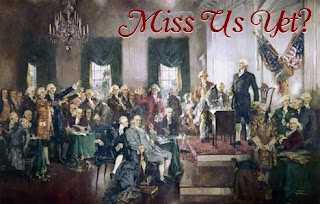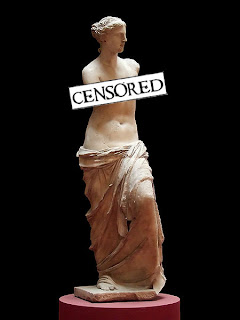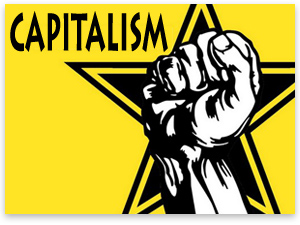The European ruling elites are struggling to hold the whole project together...
But the real problems emerge from the technocratic mind-set, from the arrogant gray men who believe they can engineer society, oblivious to history, language, culture, values and place. (NY Times - Brooks)Nobody has all the answers. And no single person or body needs all the answers. That’s the fallacy: That government must be omnipotent and omniscient. It is neither, and vesting it with power and control as if it were is crazy.
The more concentrated power and decision-making becomes, the more information is needed to feed into the power center. Free markets make decisions and evolve solutions organically; static control centers cannot.
One Size Does Not Fit All
Also, as you make one-size-fits-all decisions for larger and larger groups of people, discontent can only grow among those you are trying to help. We argue over everything because government has pushed everything in to the collective, making your rights negotiable and subject to snotty bickering.
For example, imagine a Friday night alone. You’re going to settle in for a night of movie watching and you decide to order pizza. Easy. Now imagine you’re snuggled in with your loved one. The decision on movie-night fare is now a shared one. Take it a step further and imagine a houseful of people. They cannot decide on the toppings, or even which takeout place to order from. Worse, some are on a gluten-free diet and want BBQ, while other clamor for Chinese food. The bigger the crowd, the harder it is to reach a decision.
So we are better off making our individual decisions for ourselves and allowing the spontaneous economy to bloom. It works. Don’t believe me? There are literally billions of people in this world who know nothing of growing crops or killing animals, yet they do not want for food.
People and nations can capitalize on specialization, making things that others want, while not worrying about making necessities they know they can buy from others. And governments' involvement is limited to providing some infrastructure and mediating trade agreements.
How We Got Here
Every emergency has been used by the federal government as an opportunity to take another bite out of our liberties, with expediency as the excuse. As Hayek predicted, "our freedom" has been "destroyed by piecemeal encroachments."
Hayek was a big proponent of governing from broad principles where possible rather than from narrow, specific laws.
"The argument for liberty, in the last resort, is indeed an argument for principles and against expediency in collective action..."He foresaw the "fatal weakness" of government leaving free people alone with their liberties: Uncertain outcomes and glaring inequalities would scare us off our freedoms and into the arms of big daddy government. Liberty cannot compare to concrete promises and "definite gifts offered to particular individuals" in exchange for some "curtailment of freedom."
That is the fatal seduction. Not treating freedom as the "supreme principle..."
"...would inevitably prove a fatal weakness and lead to its slow erosion."Meanwhile, here in America, where Obama ignored the rule of law and saved GM from a richly-deserved bankruptcy...
The Treasury Department yesterday revised its loss estimate for the Government Motors bailout from $14.33 billion to $23.6 billion, thanks to the company’s sinking stock price.Add in the special tax breaks, and...
This means that the total hit to taxpayers, who still own about a quarter of the company, could add up to $38.6 billion. (Reason)Europe is playing a shell game, and they're running out of suckers. Here in the US, we're rearranging the deck chairs on the Titanic.
The elites have stolen our freedoms in the name of expediency and progress, but their promises of equality and prosperity are just chaff in the wind. They've led us to the brink of collapse. As Peter, Paul and Mary used to sing, "When will they ever learn? When will they ever learn?"
Or, to Paraphrase Ben Franklin, "Those who trade liberty for security end up with neither."
Quotes Taken from Hayek's "The Constitution of Liberty," pp 129-130.





















